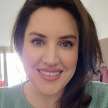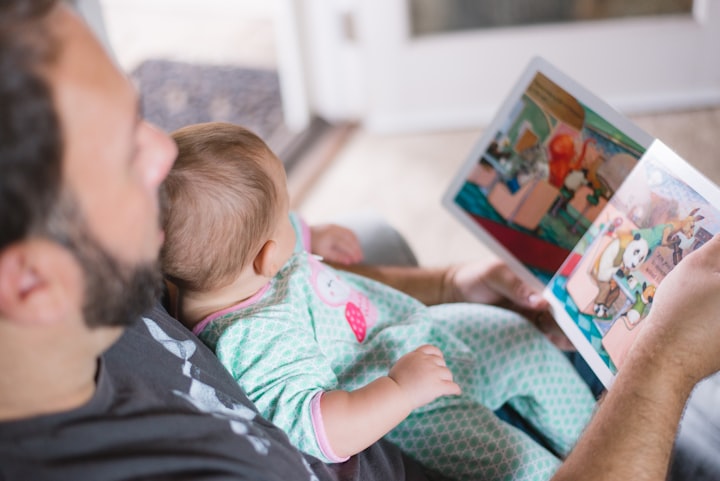Why I Choose to Write for Teens, Tweens and Children
No, it's not because I can't write for adults.
It's one of the most controversial topics in the writing world you've never heard of: the dichotomy between those that write exclusively for adults and—those that don't.
I'm going to say it.
Writing for children and teens is not the step below graduating to adult fiction. It is its own tier, full of expert storytellers who, for various reasons, choose to write for that audience.
It's no secret writers are competitive; and whether we intend to or not, we judge each other continuously. We compare and contrast ourselves worse than the Jones' and their neighbours ever could.
I get it.
While it may be true that some of us hone our skills lower down, and perhaps a small fraction do use the YA label to cover up poor quality writing, it is not the default.
Like so many other things in life where we pit ourselves against one another, this writing line in the sand is a stereotype. And it's one no one is talking about—openly.
There are those that consider me talented, and probably those that consider me overblown. Provided the criticism is constructive and my target audience enjoys my stories, it really doesn't matter to me how I'm assessed.
Fortunately, in safe places like Vocal and my writings groups, public feedback is a blessing. I usually have to press for negative things to be pointed out to me. But elsewhere in life and online, many of us YA and children's literature writers have not been treated in such a friendly manner.
This needs to change.
I think it surprises the folks that enjoy my work when I explain that unless I'm writing non-fiction, I choose to write exclusively for children (CH), teens and tweens (YA). I will likely never switch, and I certainly would not consider the move a "graduation".
Whether you hold a bias you weren't aware of, or whether you are like many I've come across who, when presenting their work, minimize themselves and their CH/YA work in comparison to those who write for adults, this article is for you; I hope it encourages you to see things in a new light.
Why do I choose to write children's and teen literature?

The answer is simple.
Because I was a child once.

Because I got my writing techniques and talent from reading hundreds, if not thousands of books over the years.
No, that's not an exaggeration: my mom used to max out our library card, (thirty books a week), every week, for as long as I can remember. She continued to do so all the way into our early teens when we took over our borrowing. And yes, she also read nearly all of them, often many, many, many times.
Up until I became an adult, by and large the books were from, you guessed it: the CH and YA genres. Since the start of every writer's journey is their exposure to children's literature, I think you can see where I'm going.
Books have the capacity to alter your soul.
They can transport you to new shores, planets, places and into millions of different lives; you can live and die as a thousand different characters; you can feel the entire spectrum of humanity's emotional-rainbow—all without leaving your home. Thankfully, books can be made accessible to the masses through public libraries and put into any number of formats, so that no matter your wallet size or how your body functions, everyone can enjoy them.
Children and YA books, specifically, are invested ink for the future pen. They help us dream, process our emotions, seek help, discover ourselves and our identities. If you're really lucky, you'll stumble on a few that leave wordprints on your very being and direct the course of your adult life.
Literacy is truly the foundation of a society, in my opinion, and I take pride in teaching children and ESL learners to love reading.
I consider it a privilege to write in the genre of books that have the capacity to alter humanity. Children are our most vulnerable members of society, and I take my role very seriously. I am continually looking for ways to shape and mould my words so that they are inclusive, helpful, and meaningful for the readers that trust me enough to read them—beyond just creating a tale they enjoy. I deliberately place meaning between the lines in everything I publish for children and teens. I take thousands of extra minutes and moments to carefully write my stories using allegory, metaphors, similes, rhythms, alliteration, onomatopoeias and more. I aim to help them grow.
For example:
In my upcoming novella for tweens (9-12), I went so far as to painstakingly assess my vocabulary choices and include a glossary at the bottom of each page for any word that, based on my experience teaching, I know a child that age would highlight as "unknown".
In reading comprehension, it's fine to look those words up at the end of the task and then reread with definitions. But...in a story, it spoils the flow. The glossary technique is something I learned by teaching ESL students: I would read their novel ahead of time and hand write them a personal dictionary to refer to in real-time.
Did it take me extra hours during my own uni study time? Heck, yes! But it was worth every cup of coffee. The feedback from those days, the joy and pleasure a simple glossary with their tale brought them, is something I will never forget.
And you see, it's reasons such as above that forever and always, my literary home will remain with our youth. Adults welcome, of course!

Come hang with us.
***
About the Author:
Les lives a quiet life in Canada with her three rescue cats. She primarily writes children's and teen fiction but will delve into anything that gets the swirling words out of her brain. Her first book, Owl in a Towel, is available for purchase here. Her next book, Carrie and the Curious Caticorn Caper, is expected to be released in late 2022. Publishing inquiries may be directed to [email protected].
About the Creator
Call Me Les
Aspiring etymologist and hopeless addict of children's fiction.
If I can't liberally overuse adverbs and alliteration, I'm out!
Instagram @writelesplaymore
~&~
Reader insights
Outstanding
Excellent work. Looking forward to reading more!
Top insights
Heartfelt and relatable
The story invoked strong personal emotions
Easy to read and follow
Well-structured & engaging content
Excellent storytelling
Original narrative & well developed characters
Expert insights and opinions
Arguments were carefully researched and presented
Eye opening
Niche topic & fresh perspectives
On-point and relevant
Writing reflected the title & theme
Compelling and original writing
Creative use of language & vocab
Masterful proofreading
Zero grammar & spelling mistakes







Comments (17)
My early years son loved Owl in a Towel. It was his favourite. 🥰🥰
Great article, Les! Writing for children definitely is its own art and calls for many skills that one does not need to consider when writing for adults. I love the part where you talk about teaching and writing for ESL children. I teach in a dual immersion program so I can definitely respect the skill it takes to work with second language learners. 😍
I am sorry that people haven’t treated you with the respect you deserve. My 8 year daughter is a voracious reader. I agree with everything you’ve said here and I have a lot of respect for writers of children’s and young adult literature! It’s so important that our kids have quality stuff to read! 💖 Than you!
Great article! It's always refreshing to read a well-written and informative piece. Thank you for sharing it with me.
I had no idea that people thought that writing for adults are superior to writing for children and teens. That's just so absurd! Also, I totally agree with you, books are the best thing in life! And I love the glossary idea that you used so that it doesn't spoil the flow! I enjoyed reading this, Les!
I'm glad you posted a fresh link to this. It's an excellent read and as it turns out, more food for my thoughts. I grew up with an ingrained love of literature, mostly because my mother made sure each of her 4 children could read, well before we started kindergarten. (There's a story about that coming up soon.) I've spent the last 20+some-odd years writing mostly for adults as a professional content writer. Now that I'm stretching my creative wings on Vocal again, I've considered trying some CH and YA, but there's definitely an intimidation factor. I did take the opportunity to edit a YA fiction novel last year and I enjoyed the experience. It's actually doing very well since publishing, so that's a plus, too. Maybe one of these days. Kudos for your choices and a great article about them!
I absolutely agree with this! 🥰
This is still an excellent article, and writing for children is definitely on the same level as writing for adults, though maybe writing for adults is easier because we don't have as much to consider about the mental welfare of our audience
I agree with Cathy and have thought CH and YA books are harder to write. I always thought if I were an artist I may try one. It is difficult to get someone to commit to the art. I have had 4 artists for a book for all ages I wrote with a friend years ago now. Fun little book that I was hoping the art would eliminate many of the words. Still not there but haven't given up.
Thank you everyone! Been so wrapped up in the two magazines been a little behind on comment answering! Much love <3
Love this. Thanks for the insights.
You got an A+ on that composition. "If you're very lucky, you'll stumble upon one or two that will leave word prints on your very being"...I have never heard of word prints before, but I did stumble upon a few that did that for me. I will be reading this again. I plan to order your new book for my little Great-Granddaughters and check out anything new you publish before Christmas. My youngest babies are 2 years old and 6 months old.
Great article. It would never occur to me that CH and YA writers would would be considered a lower talent. I think it would be harder and even require more talent to appeal to that demo. I'm not sure I could do it.
Excellent article with lots of pertinent observations
Loved reading your outstanding story!!! Hugs & hearts💕
Nice job, Les! I have my debut Middle Grade (or lower YA) coming out soon. I love writing this genre, because I've been there, and it really is hard to get it right!
Well said Lesley. I believe a good writer of Children's books is way harder to be than a good writer of adult books.